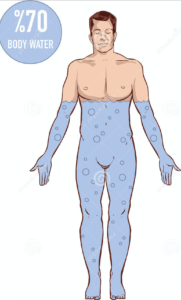
The human body is 50 to 75% water, depending on the source you are looking at. Some organs, like the lungs are approximately 83% water, where the heart and brain are made up of 73% water. Water is necessary for every one of the body’s functions, in fact every living cell in the body needs it to keep functioning. The human body can go without food for about 21 days depending on the health of the person but cannot do without water for more than 3 to 4 days.
Is there a connection between dehydration and join pain?
Water rich tissues in the body
We need water to lubricate our joints. Ligaments, tendons, cartilage and the discs in the spine are in large part water. If we don’t drink enough water throughout the day these tissues begin to lose water and don’t function smoothly.
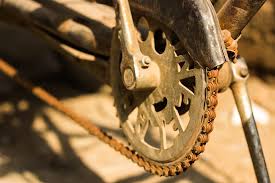
Imagine a chain on a bicycle or the gears in a motor; if they do not have oil the cogs cannot move smoothly, the bicycle chain will stick and catch, all of this causing increased wear and tear on the mechanism. The same is so for the human body and the joints. Drying out the joints, by not drinking enough
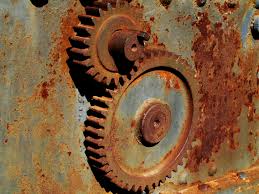
water, eating water rich foods and or losing excess water and not replenishing it, increases wear and tear on the joints creating accelerated degeneration. Optimal hydration is imperative for healthy joints.
How we lose water
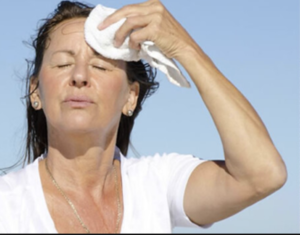
Our bodies are constantly losing water through various bodily functions. Urination and sweating are the most obvious of these functions. We also lose water when we breathe, as we exhale. Water is eliminated through our colon as well and is an important part of eliminating waste from the body.
Urination is equally important in the elimination of waste products from our body. This is one of the reasons it is important to drink plenty of pure clean water. Various toxins that are accumulated in the body via food we eat, beverages we consume and the air we breathe, to name a few, make it into our blood stream. This blood makes its way to our kidneys where it is filtered. Water helps to flush these toxins out of our bodies via the urinary system. If we don’t get enough water, fewer toxins make it out of our body. This can impair organ function.
Various causes of increased loss of water
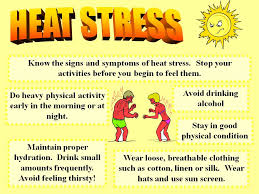
The mechanism of sweating is important in regulating our body temperature when it heats up. In extreme heat conditions when excessive sweating occurs, we can lose 1 to 1 1/2 liters of sweat per hour. If this water is not replaced it causes blood volume to drop. This in turn causes blood pressure to drop. If 10% of body weight is lost in water, this is an emergency and can be fatal if the fluids are not replaced.
When a person becomes ill from either the flu or some other illness, or from eating food that’s gone bad, the digestive system wants to eliminate it, so vomiting and diarrhea can occur. This can cause dehydration as well as a decrease in electrolytes in the body. It is important to stabilize the body and begin to introduce fluids back into the body as soon as possible. Check out this comprehensive article on Causes of vomiting as well as how to reintroduce fluids and food. http://www.wsupgdocs.org/family-medicine/WayneStateContentPage.aspx?nd=1560
There are medications that can have a diuretic (loss of water) effect. It’s important to consult with your physician or pharmacist regarding the potential side effects of the medications you take. You may need to increase your water intake daily if you will be losing excessive water while taking these medications.
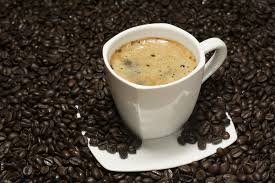
Drinking coffee and tea will also increase urinary out put. For this reason it is necessary to drink at least one glass of water for every caffeinated beverage you drink above your normal water intake. These beverages do not count as water intake for the day as they have that diuretic effect.
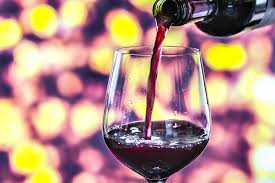
Alcohol also increase urinate out put. One of the reasons that people suffer from a headache after drinking alcohol is that they become dehydrated. Check out this article by the National Headache foundation that explains this process in greater detail. https://headaches.org/2007/10/25/alcohol-and-headaches/
Diuretic and anti-inflammatory supplements and herbs can also cause an increase in urinary output. Adjust your water intake accordingly.
Optimal water intake and committing to it
As a guideline if you take in half your body weight in ounces every day, you should have plenty of water. If you drink coffee or tea, increase your water intake by the amount of the beverage you took in. 8 ounces of coffee or tea = 8 ounces of extra water.
It is also very important to eat an abundance of fresh vegetables and fruits to help with hydration. Eating a nutrient rich diet helps to maintain healthy organ systems and encourages optimal tissue repair. When we eat foods that are processed, overcooked, high in sugar and salt, our body has a hard time functioning and repairing itself for optimal health.
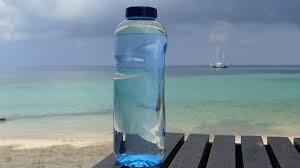
My favorite way to make sure I stick to drinking enough water every day is to have a water bottle(s) with the amount of water in it that I’m supposed to drink every day. You might need to fill 2 or 3 bottles and set them aside. I keep one water bottle near me always. Create the habit of drinking a few swigs every 15 minutes. Set a timer at first if you need help creating the habit. I make sure to finish the water in all of the water bottles by the evening. Once you start drinking water you will almost crave it.
Conclusion
Water is a wonderful thing to crave over unhealthful beverages. The health benefits are great. You will notice how much better you feel if you eliminate the sugary or diet drinks (including fruit juice) and replace them with a sufficient amount of water in your daily intake. You may find that all you needed to do in order to get rid of that headache, low back or knee pain is to increase your water intake. A simple solution for a painful problem.
I hope you were able to find some answers regarding dehydration and joint pain here in this blog post. Please let me know if you have any questions. I would love to hear about your experiences concerning this issue.
Yours in good health,
DrDina:)


